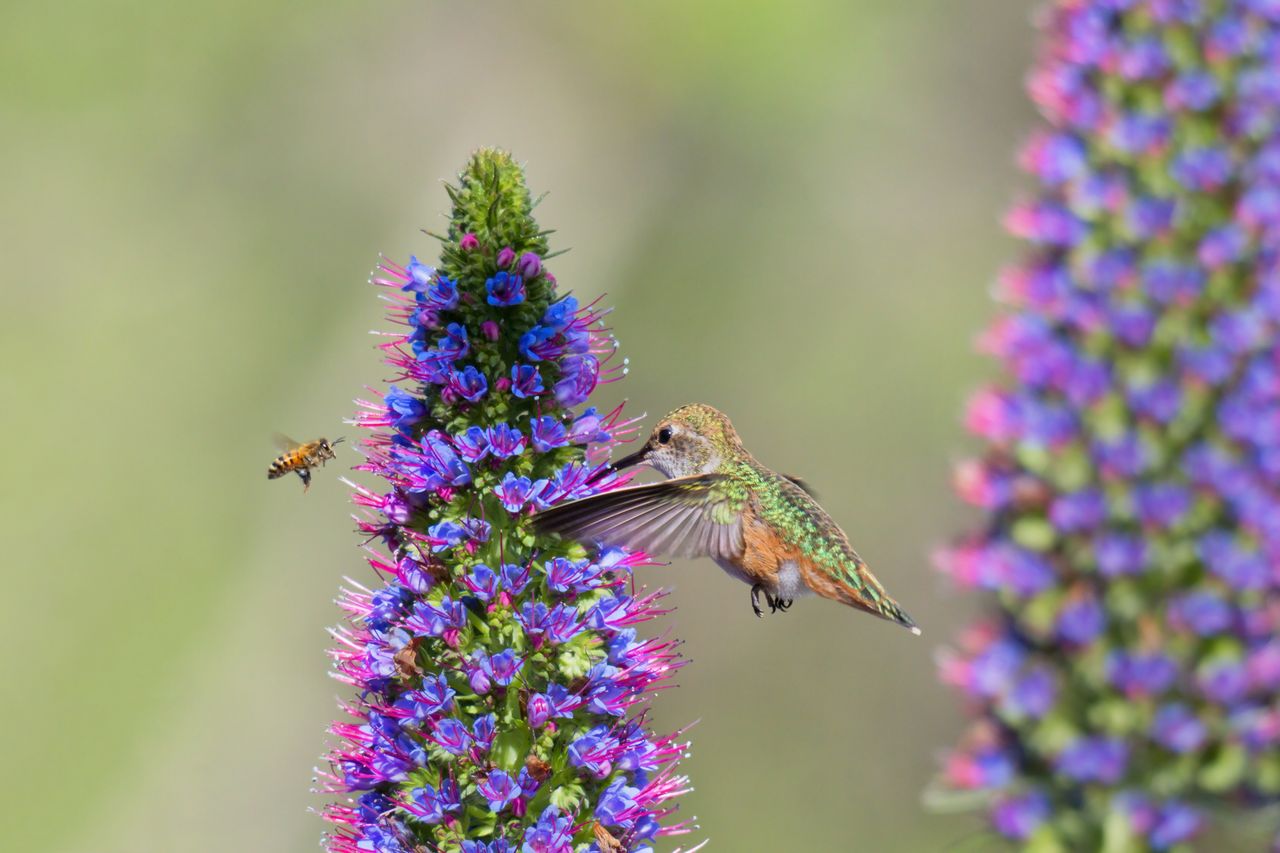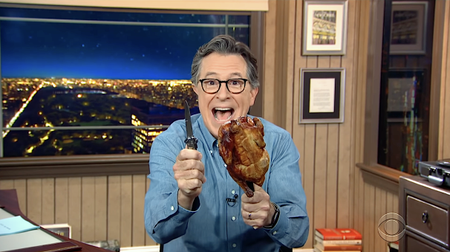How to talk to your kids about sex
Yes, it will be uncomfortable. But there are ways to make it less awkward and more informative for your children.


Remember "The Talk?" If it went down in your house the way it did in mine, mom or dad knocked on your bedroom door one day, explained a few things about biology (things you probably already knew from the playground and covert sessions with the Encyclopedia Britannica) and "special feelings" (about which you did not want to hear, at least not from your parents) before declaring it a "good talk" and fleeing the room, leaving behind an air of deep mortification and a pamphlet from the pediatrician's office.
Well, things have changed, folks. Like nearly everything else on the planet, the landscape of sex and sexual activity has altered dramatically in the past three decades. The internet. Social media. The hookup culture and commodification of sex, especially amongst young women. The growing prevalence of binge drinking and its effects on developing brains. The rise of the LGBT movement, and the acceptance of various sexualities, including asexuality, as normal and fulfilling.
Our kids are navigating a complex sexual terrain.
Subscribe to The Week
Escape your echo chamber. Get the facts behind the news, plus analysis from multiple perspectives.

Sign up for The Week's Free Newsletters
From our morning news briefing to a weekly Good News Newsletter, get the best of The Week delivered directly to your inbox.
From our morning news briefing to a weekly Good News Newsletter, get the best of The Week delivered directly to your inbox.
And that means our kids need our help. Now, more than ever, our sons and daughters need us to be informed, thoughtful, and frank regarding matters of sex and sexuality. We have to talk to our kids about this stuff. Can this be uncomfortable? Of course. Many things have changed, but we modern parents probably feel as awkward as our own folks did about talking to our kids about sex. And our children, poor things, will probably be just as horrified as we were to have such a personal subject broached by someone as hopelessly lame as mom and dad.
Do it anyway.
"Parents need to be talking to kids comprehensively about sex in general," says Shafia Zaloom, teacher and noted sex education expert. "Not just about the mechanics of sexuality, but how to treat people. How to take care of themselves. How to have healthy, happy, and rich relationships throughout their lives.
"If you don't do it, their peers and the internet will," Zaloom warns. "Whatever your family's particular values and beliefs may be, no one can instill them in your child as well as you — and that means talking honestly about sex in the context of those values."
What follows are a few pointers that just might help get those conversations started — perhaps earlier than you'd think.
It's not just one talk anymore
Even very young children will have basic questions about reproduction and their own bodies. Answer these honestly and without resorting to confusing euphemisms, but don't feel compelled to share the entire sexual canon with your 6-year-old child, either.
Robie Harris has written numerous books appropriate for various age levels. There are other resources available to help you initiate good conversations about healthy sexuality, personal protection, and choices for your older children as well. Access these. If you start by having candid, age-appropriate, and brief talks about anatomy, reproduction, and sexuality with your children early on, the later — and more complicated — conversations will come more easily.
If you have moral concerns about modern sexual culture, explain them — and your reasons — as they arise. Your children will appreciate your candor and your respect, so long as you listen to them and their opinions and concerns in turn.
The digital factor
Our digital-native kids have had access to all kinds of information. Some good, some bad. And some of it very bad. It is our job as parents to help them figure out the difference — and to help them stay safe, and keep others safe, as well.
By the time they are teens (and sometimes even earlier) your kids have seen stuff that you probably wish they had not seen. This is upsetting to us parents, of course. However, if you can face the facts and speak honestly with your child about the proliferation of sexual imagery on the internet, you can be a trusted resource when they eventually do see images that confuse or disturb them.
And when they are slightly older, monitor your children's use of social media with the same zeal you used to monitor their fluid intake and output when they were infants. Allow them to use sites such as Instagram and Pinterest, if you wish. Research indicates young people need these social platforms to connect with their peers today. But be sure you also have full access to your tweenie and younger teens' feeds and communications, so that you can have conversations about posts and images that may not be appropriate.
Consent is everything
We teach our younger children to protect the sanctity of their bodies, and to tell a trusted adult if anyone attempts "inappropriate touching." We parents must have equally candid conversations about sexuality and mutual consent with our older daughters and sons.
"Any talk about sexuality with older children must include a discussion about consent," says Zaloom. It is no longer enough to teach your children that "no" means "no." In California and an increasing number of other states, law requires that partners of any gender must receive affirmative consent at every stage of increasing physical intimacy with another person.
Affirmative consent — the process of verbally ensuring a partner's willingness throughout a physical encounter — can feel like a gray area to anyone, especially younger adults with little sexual experience. Today, it is not. The legal standard of affirmative consent is being increasingly upheld in courts, and young people who do not exercise it run the risk of losing everything from college scholarships to their freedom.
You might want to consider watching this brilliant public service announcement from Great Britain with your older tweenie or teenager and talking about it afterward.
Young men and women alike need to know that when they are engaging in physical intimacy of any kind with others, they must actively check in with their partners. Does this sound romantic and sexy? Not really. But it is important, and it doesn't have to be awkward. A question as simple as "You good?" can help any couple — young or old — ensure a more mutually satisfying encounter.
By the same token, both your daughters and your sons need to know, with certainty, that they can refuse and back away from physical intimacy of any kind and at any point.
The role of alcohol
A few months ago, the media (and others) were having good fun poking fun at then-presidential candidate John Kasich for responding to a question about the proliferation of sexual assault on college campuses and elsewhere by saying he would advise his own daughters to "avoid parties where there was a lot of alcohol."
Guess what? Kasich was right.
Sure, he should have constructed a more thoughtful answer advising young men as well as women to be cognizant about this issue, because the facts are these: Alcohol is a chemical dis-inhibitor, repressing controlled and intentional attention, verbal, locomotor, and sexual behaviors in both men and women. Alcohol intoxication has also been proven to increase aggression in all genders. Talk to your kids about this.
If your adult children drink alcohol — which is only legal for people 21 and older — encourage them to do so in moderation, and to move in social groups that will care for individual members who may become incapacitated.
Speaking of incapacitation: The pharmacopeia of so-called "date rape" drugs has exploded. Talk to your child about this. Make sure s/he knows a drug could be introduced into any beverages they consume in public. Both young women and men should follow this simple maxim: If you ever leave your drink, alcoholic or not — even for a matter of seconds — dump it out and get another.
In the end, it's about caring
Sex — for those who choose to engage in it, in any way — should be safe and fulfilling, never fraught nor anxious. So should conversations between loving parents and their children about healthy sexual choices and behavior. For many of us parents, that might mean learning about and broaching subjects that our own parents may have never even dreamed of. Will this be easy? No. Do it anyway. Our children's ultimate health and happiness — even their lives — depend upon it.
Sign up for Today's Best Articles in your inbox
A free daily email with the biggest news stories of the day – and the best features from TheWeek.com
Leslie Turnbull is a Harvard-educated anthropologist with over 20 years' experience as a development officer and consultant. She cares for three children, two dogs, and one husband. When not sticking her nose into other peoples' business, she enjoys surfing, cooking, and writing (often bad) poetry.
-
 Today's political cartoons - March 30, 2025
Today's political cartoons - March 30, 2025Cartoons Sunday's cartoons - strawberry fields forever, secret files, and more
By The Week US Published
-
 5 hilariously sparse cartoons about further DOGE cuts
5 hilariously sparse cartoons about further DOGE cutsCartoons Artists take on free audits, report cards, and more
By The Week US Published
-
 Following the Tea Horse Road in China
Following the Tea Horse Road in ChinaThe Week Recommends This network of roads and trails served as vital trading routes
By The Week UK Published
-
 Late night hosts lightly try to square the GOP's Liz Cheney purge with its avowed hatred of 'cancel culture'
Late night hosts lightly try to square the GOP's Liz Cheney purge with its avowed hatred of 'cancel culture'Speed Read
By Peter Weber Last updated
-
 Late night hosts survey the creative ways America is encouraging COVID-19 vaccinations, cure 'Foxitis'
Late night hosts survey the creative ways America is encouraging COVID-19 vaccinations, cure 'Foxitis'Speed Read
By Peter Weber Published
-
 The Daily Show's Trevor Noah carefully steps through the Israel-Palestine minefield to an 'honest question'
The Daily Show's Trevor Noah carefully steps through the Israel-Palestine minefield to an 'honest question'Speed Read
By Peter Weber Last updated
-
 Late night hosts roast Medina Spirit's juicing scandal, 'cancel culture,' and Trump calling a horse a 'junky'
Late night hosts roast Medina Spirit's juicing scandal, 'cancel culture,' and Trump calling a horse a 'junky'Speed Read
By Peter Weber Last updated
-
 John Oliver tries to explain Black hair to fellow white people
John Oliver tries to explain Black hair to fellow white peopleSpeed Read
By Peter Weber Published
-
 Late night hosts explain the Trump GOP's Liz Cheney purge, mock Caitlyn Jenner's hangar pains
Late night hosts explain the Trump GOP's Liz Cheney purge, mock Caitlyn Jenner's hangar painsSpeed Read
By Peter Weber Published
-
 Late night hosts marvel at that photo of the Bidens and Jimmy and Rosalynn Carter, mark Star Wars Day
Late night hosts marvel at that photo of the Bidens and Jimmy and Rosalynn Carter, mark Star Wars DaySpeed Read
By Peter Weber Published
-
 Late night hosts temper America's new surge of optimism, hit Romney's rough reception, Flynn's Pledge fail
Late night hosts temper America's new surge of optimism, hit Romney's rough reception, Flynn's Pledge failSpeed Read
By Peter Weber Published
